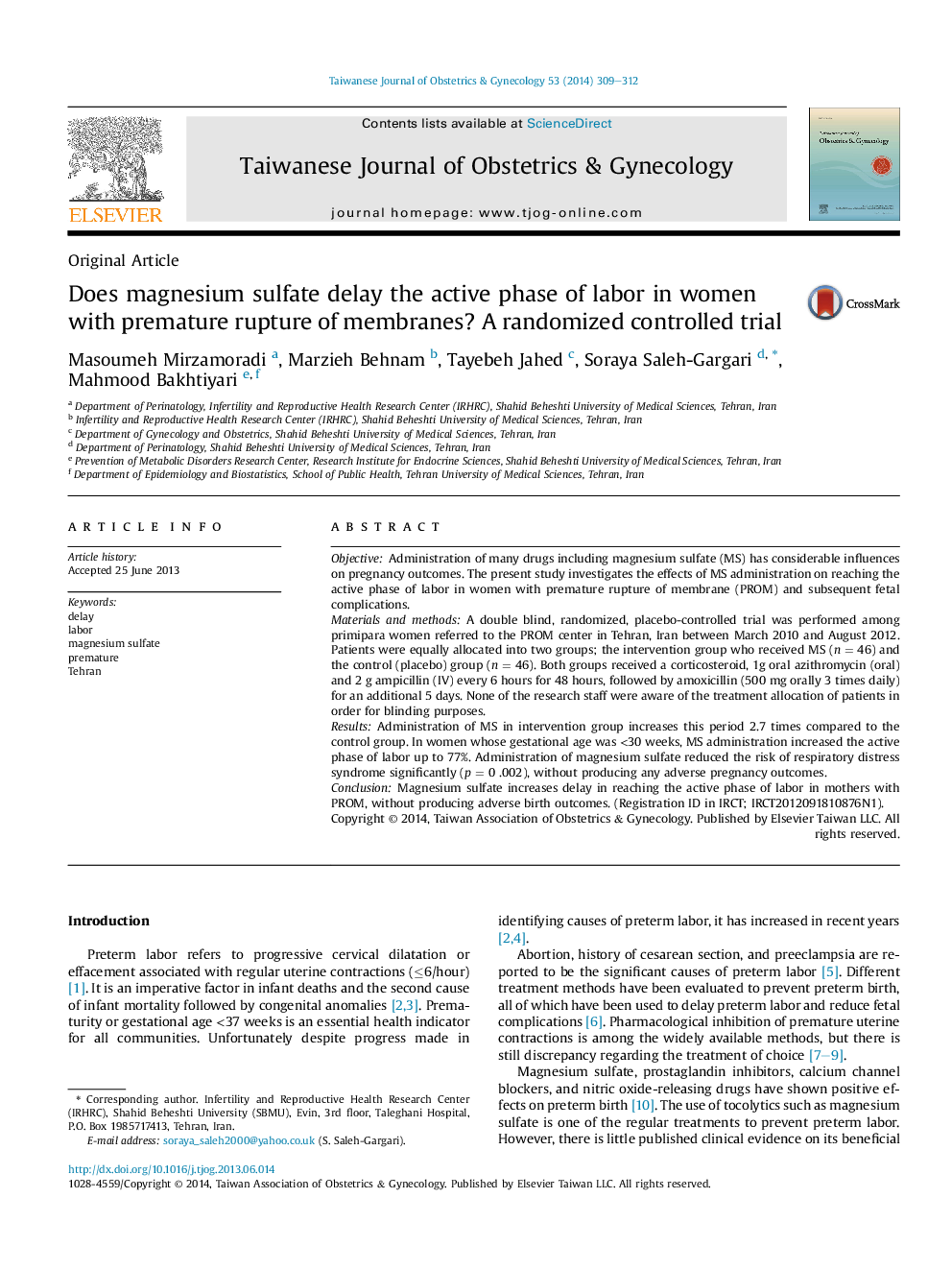| Article ID | Journal | Published Year | Pages | File Type |
|---|---|---|---|---|
| 3975197 | Taiwanese Journal of Obstetrics and Gynecology | 2014 | 4 Pages |
ObjectiveAdministration of many drugs including magnesium sulfate (MS) has considerable influences on pregnancy outcomes. The present study investigates the effects of MS administration on reaching the active phase of labor in women with premature rupture of membrane (PROM) and subsequent fetal complications.Materials and methodsA double blind, randomized, placebo-controlled trial was performed among primipara women referred to the PROM center in Tehran, Iran between March 2010 and August 2012. Patients were equally allocated into two groups; the intervention group who received MS (n = 46) and the control (placebo) group (n = 46). Both groups received a corticosteroid, 1g oral azithromycin (oral) and 2 g ampicillin (IV) every 6 hours for 48 hours, followed by amoxicillin (500 mg orally 3 times daily) for an additional 5 days. None of the research staff were aware of the treatment allocation of patients in order for blinding purposes.ResultsAdministration of MS in intervention group increases this period 2.7 times compared to the control group. In women whose gestational age was <30 weeks, MS administration increased the active phase of labor up to 77%. Administration of magnesium sulfate reduced the risk of respiratory distress syndrome significantly (p = 0 .002), without producing any adverse pregnancy outcomes.ConclusionMagnesium sulfate increases delay in reaching the active phase of labor in mothers with PROM, without producing adverse birth outcomes. (Registration ID in IRCT; IRCT2012091810876N1).
